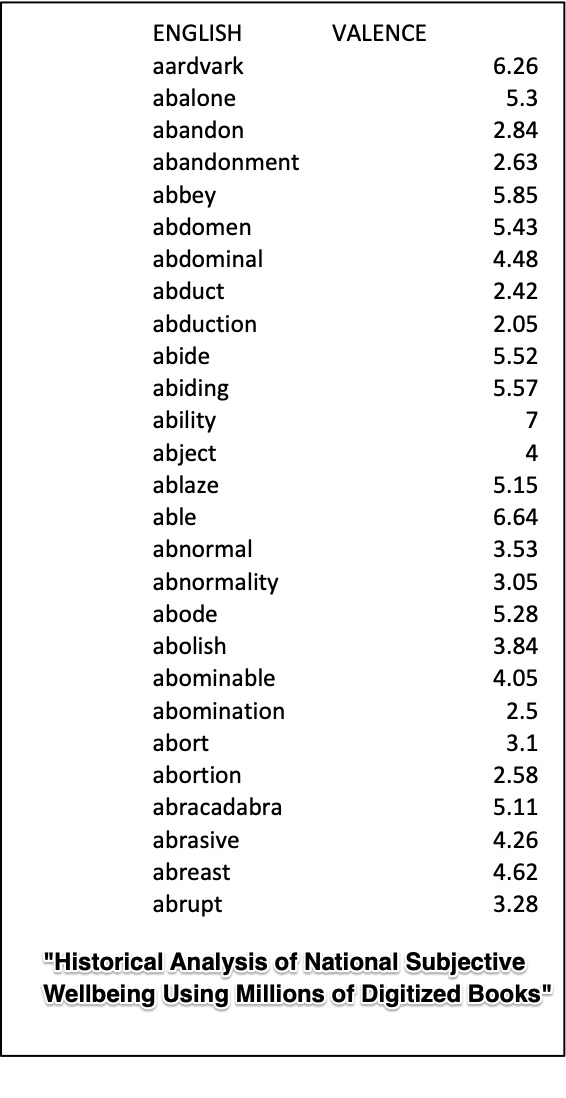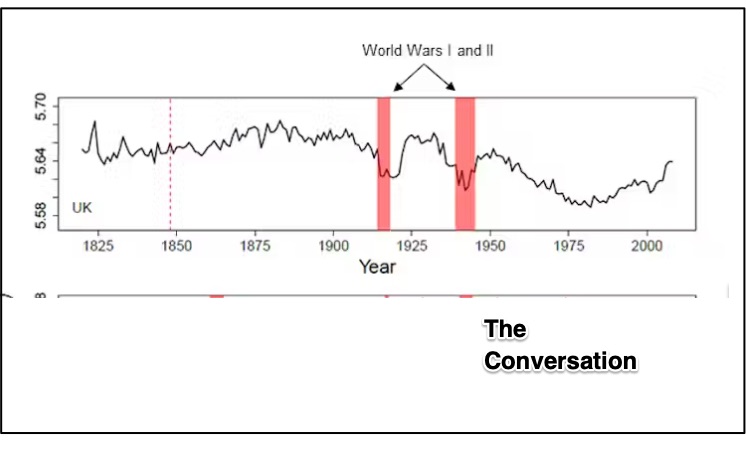Having seen that marriage and money make many of us happier, we can ask if there is more. Answering yes, scholars looked at approximately 200 years of language. Their goal was to correlate with events the positive and negative words that fiction, non-faction, and newspaper writers used in millions of books since 1820. As a result, they could judge our emotional response to a slew of topics that ranged from health to affluence to war.
They could tell us if it’s better to increase our GDP or live longer.
History of Happiness
The surveys we typically use to assess contemporary happiness are, of course, not available for most of the past 200 years. Instead, researchers can look back though the words writers used in digitized books. The key was to give every word a score (they called a valence) that let them quantify the frequency of happy and sad language. As you might expect, words like love and celebration signaled an upbeat era. Meanwhile death and anger imply the opposite. Even words with less emotional clarity got a grade.
In their paper, the Valence scale was 1-9. I guess aardvark is a happy word?
 With such big data now available through Google, we can conclude that internal conflict affects our emotions much more than changes in the GDP. We need a 5% bounce in GDP to have the same impact as a 1% boost in life expectancy. Suggesting a connection that few of us would have recognized, national debt creates happiness. I assume though we are referring to active fiscal policy.
With such big data now available through Google, we can conclude that internal conflict affects our emotions much more than changes in the GDP. We need a 5% bounce in GDP to have the same impact as a 1% boost in life expectancy. Suggesting a connection that few of us would have recognized, national debt creates happiness. I assume though we are referring to active fiscal policy.
More precisely, the U.S. was happiest during the 1920s and saddest during the Great Depression and World War II. To my surprise, and (perhaps yours), happiness popped back rather quickly after World Wars 1 and 11:
 Our Bottom Line: Policies
Our Bottom Line: Policies
By quantifying happiness, researchers concluded that one extra year of life had the same happiness impact as a 4.3% GDP increase. They observed that just one year of internal conflict matched our response to a 30% plunge in GDP. Having tomes of happiness data from the U.S., U.K., Germany, France, Spain, and Italy, these researchers believe governments could devise wiser policies.
Knowing what made great grandma happy will let us better plan for our grandchildren.
My sources and more: Today, just one paper and its summary told us a lot about happiness.


 Our Bottom Line: Policies
Our Bottom Line: Policies



